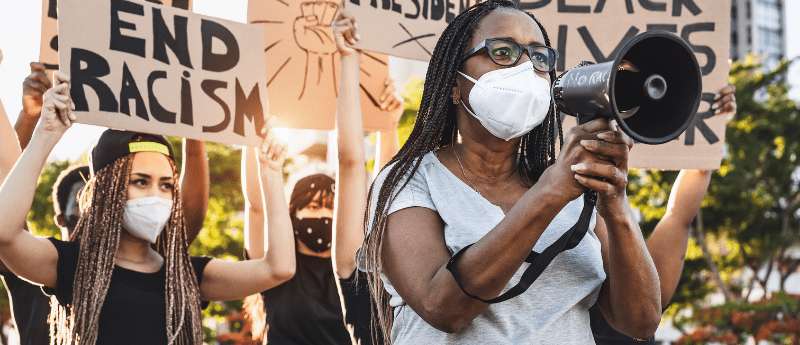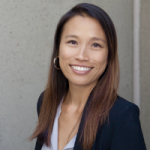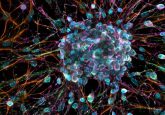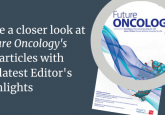Establishing best-practice guidelines for antiracist patient engagement in AYA oncology research

In this interview we speak with Christabel Cheung about her current research focused on developing guidelines for patient engagement in in adolescent and young adult (AYA) oncology research and her hopes for engaging BIPOC (Black, indigenous, and people of color) AYAs in oncology research will improve over the next few years. If you would like to find out more about Christabel’s research make sure to also check out the team’s most recent Review paper, published in Future Oncology, here.
Can you provide an overview of the Delphi study?
The purpose of the current Delphi study is to develop guidelines for best practices in antiracist patient engagement in AYA oncology research and advocacy to inform the development of effective strategies for collaborating with still-developing BIPOC AYAs in the conduct of research. Furthermore, findings will provide unique data with the potential to improve patient-centered programs, policies, and support for BIPOC AYA cancer patients.
In a preceding study, AYA oncology professional experts developed a review article describing their recommendations for antiracist patient engagement in AYA oncology research and advocacy by co-authoring a review article that has been submitted to a peer-reviewed journal for publication. The PCORI Framework for Patient Engagement provided the organizing structure for their review. Meanwhile, the PCORI Core Principles were discussed in terms of identifying the highest priority principle and explicating their rationale.
In the current study, a panel of BIPOC AYA cancer patient experts will participate in a Delphi study to present their own recommendations for antiracist patient engagement in AYA oncology research and advocacy. Additionally, they will respond to the recommendations from AYA oncology leaders resulting from the preceding study. Through this process, guidelines for best practices in antiracist patient engagement in research will be co-created and derived from the expertise of both BIPOC AYA cancer patients and AYA oncology experts by employing a consensus process that is informed by theories that advance antiracism.
Results of our Delphi study will be presented virtually at 4th Annual Global AYA Cancer Congress (London, UK, 1−2 December 2021). Afterwards, we will pursue publication in a peer-reviewed journal.
Can you give us an overview of your research?
My psychosocial oncology research prioritizes scientific innovation that is inspired by the embodied knowledge of our ever diversifying and intersectional AYA patient care population in the domains of financial hardship, social determinants of health, disparities, and antiracist patient engagement. My ultimate goal is to eliminate unnecessary suffering.
What prompted you to investigate this topic?
I was initially prompted to study AYA oncology by my own embodied knowledge as a BIPOC AYA patient scientist, who is a two-time survivor of Hodgkin’s lymphoma and a bone marrow transplant beneficiary. I have since been compelled to respond to the huge gap in empirical knowledge on the minoritized and intersectional experiences of AYA patients, who are characterized by non-dominant racial/ethnic identities.
Why do you think the results from this study are so important to the oncology field?
This study will innovatively fill a huge gap in knowledge on BIPOC AYAs by uniquely advancing best practice guidelines for oncology research that elucidate a genuine commitment to antiracism. Through a genuine, inclusive, and rigorous scientific process, guidelines for best practices in antiracist patient engagement in research will be co-created and derived from the expertise of both BIPOC AYA cancer patients and AYA oncology experts. Findings from this study will set a new standard for antiracist approaches to patient engagement in the conduct of research; it will be instructional for researchers and clinicians interested in implementing patient-centered methods.
Why is this data so important for adolescent and young adult patients?
In these fraught sociopolitical times, AYA oncology researchers have an opportunity to seize this moment of racial awakening to implement lasting, structural changes that bring the expertise of BIPOC cancer patients to the fore at every stage of research prioritization, conduct, dissemination, and evaluation. The current climate of rapidly increasing diversity, equity, and inclusion (DEI) responses from white-led and predominantly white-serving oncology institutions in the name of “antiracism,” often excludes BIPOC individuals and communities from the leadership of these efforts. What’s more, the majority of these white leaders have little to no experience or track record for implementing successful antiracist strategies. This lack of BIPOC leadership perpetuates the long-standing problem of structural racism in oncology research and advocacy, and leaves AYA cancer patients acutely vulnerable to exploitation by mainstream organizations to serve in ‘token’ roles that do not hold true influence nor power to create change. Since BIPOC AYAs are still biologically and psychosocially developing into adulthood, such token participation has great potential to inflict harm. Guidelines for best practices that prioritize an antiracist lens and are responsive to the developmental needs of BIPOC AYA cancer patients in the conduct of AYA oncology research and advocacy are urgently needed to inform ethical and effective patient engagement, especially in our current sociopolitical environment.
The current climate of rapidly increasing diversity, equity, and inclusion (DEI) responses from white-led and predominantly white-serving oncology institutions in the name of “antiracism,” often excludes BIPOC individuals and communities from the leadership of these efforts.
How do you hope engaging BIPOC AYA patients will change in the next 5 years?
I hope to see more BIPOC leaders of AYA oncology institutions and initiatives who are being utilized and compensated appropriately for their contributions, and fewer AYA cancer initiatives that tokenize BIPOC AYAs. It is currently quite common to find token images of BIPOC AYAs on the websites of AYA cancer care programs, but no actual BIPOC representation among their program participants and/or leadership in real life. Genuine efforts aimed at promoting health equity require BIPOC leaders with strong track records of success to lead efforts that aimed at including BIPOC AYAs. It would seem absurd for a women’s health initiative to have no women involved in its leadership; likewise, BIPOC initiatives need BIPOC leadership on efforts that address issues that originate from BIPOC AYAs themselves.
I also hope that one day, I will no longer hear disheartening stories about BIPOC AYA cancer patients, who felt fooled into thinking there would be other BIPOC participants at a cancer support program based on photos in marketing materials, but subsequently discovering zero BIPOC participants when they joined.
The suffering created by the tokenization and exclusion of BIPOC patients in AYA oncology is unnecessary and can be eliminated. We offer guidelines to begin this urgent process of dismantling legacies of racism and erecting new structures that will secure an antiracist future.
I also hope that one day, I will no longer hear disheartening stories about BIPOC AYA cancer patients, who felt fooled into thinking there would be other BIPOC participants at a cancer support program based on photos in marketing materials, but subsequently discovering zero BIPOC participants when they joined.
Interviewee profile:
 Christabel K. Cheung is a scholar, writer and self-proclaimed ‘cancer gangster’ who has twice-survived Hodgkin’s lymphoma. Cheung is a tenure-track assistant professor at the University of Maryland School of Social Work and member of the University of Maryland Greenebaum Comprehensive Cancer Center (both MD, USA). Her research interests in psychosocial oncology are primarily focused on adolescent and young adult (AYA) cancer patients in the domains of financial hardship, social determinants of health, disparities, embodied research methods, and antiracist patient engagement in the conduct of research. In pursuit of these interests, she has led research projects as principal investigator and co-principal investigator, and contributed to numerous cancer care optimization, patient education, and advocacy initiatives aimed at improving health and behavioral health outcomes.
Christabel K. Cheung is a scholar, writer and self-proclaimed ‘cancer gangster’ who has twice-survived Hodgkin’s lymphoma. Cheung is a tenure-track assistant professor at the University of Maryland School of Social Work and member of the University of Maryland Greenebaum Comprehensive Cancer Center (both MD, USA). Her research interests in psychosocial oncology are primarily focused on adolescent and young adult (AYA) cancer patients in the domains of financial hardship, social determinants of health, disparities, embodied research methods, and antiracist patient engagement in the conduct of research. In pursuit of these interests, she has led research projects as principal investigator and co-principal investigator, and contributed to numerous cancer care optimization, patient education, and advocacy initiatives aimed at improving health and behavioral health outcomes.
Other research activities include participation as faculty affiliate at AYA CAncer REsearch (AYA CARE), the research arm of the AYA Oncology Program at Michigan Medicine, member of the MELD Research Group for the Los Angeles Cancer Surveillance Program at the University of Southern California (CA, USA), and collaborating member at the University of Hawaii Cancer Center (HI, USA), where she was previously special member of their Minority Underserved National Cancer Institute (NCI) Community Oncology Program (NCORP). Cheung contributes as teaching faculty for the the NCI-funded Minority Training Program in Cancer Control Research (MTPCCR) and the NCI-funded Nathan Schnaper Internship Program (NSIP) in Translational Cancer Research. She has also previously served as AYA Patient Research Advocate for the NCI-funded SWOG Cancer Research Network, aimed at designing and conducting multidisciplinary cancer clinical trials.
The opinions expressed in this interview are those of the speakers and do not necessarily reflect the views of Oncology Central or Future Science Group.





